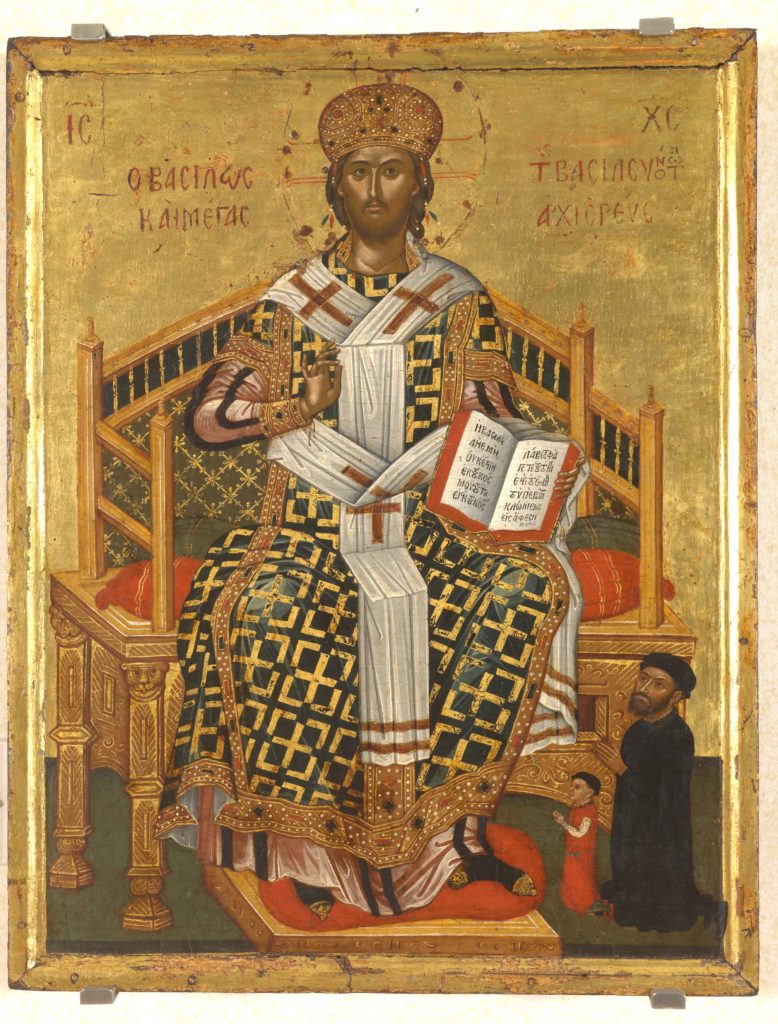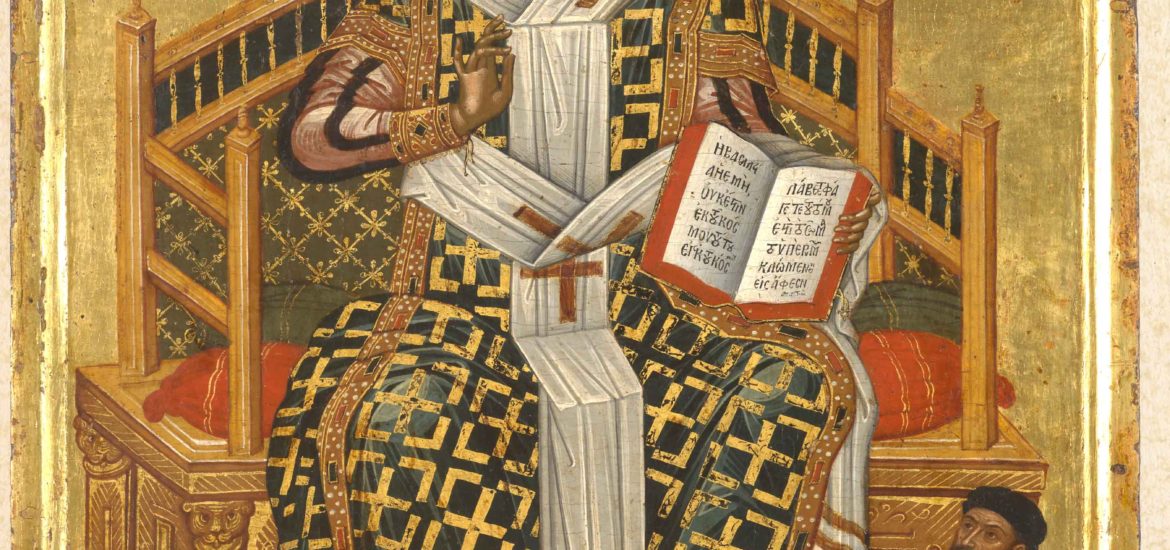
Great High Priest
July 22-28,2019
Monday, Great High Priest
“Since, then, we have a great high priest” (Hebrews 4:14a).
Young Kiersten was visiting a stavekirke (stave church) during her visit to Norway with her parents. As the family walked around the building, they noticed many similarities and many differences to the church they attend in the States. Kiersten pointed out one difference. “Look!” she said. “The altar is up against the front wall of the church. In our church, the altar has been moved away from the wall toward the congregation. Here the pastor stood before the altar. In our church the pastor stands behind the altar.”
“That’s a sharp observation,” her father replied. “If I remember my college religion course, for many years the clergy were called priests and were thought to serve as intermediaries between people and God. The priests would take the cares of the people and lift them up to God, and then speak God’s word to the people.”
We have a great high priest in Jesus. In a manner of speaking, Jesus stands before God and says, “Abba (Dad) I know what it is like down there on earth and they really need your help.” Jesus also comes to us and says, “I’ve got some great news for you! God loves you more than you will ever know.” Jesus is more than our friend or our helper. He is our great high priest.
Thank you, Jesus, for the relationship you have renewed between God and us. Amen.
Tuesday, Great High Priest
“Let us hold fast to our confession” (Hebrews 4:14b).
“Hang On!” Bonita’s father shouted over his shoulder to her. She hugged him tight as he gunned the throttle and the motorcycle shot forward. The ride was exhilarating. There were bumps and curves, fast straightaways and many stops and starts. Bonita never lessened her grip on her father. Clinging to him, she enjoyed the ride.
Things were not easy for the early Christians, for whom the book of Hebrews was written. At the very least, they were ostracized by their family, friends and society. Many faced persecution because of their faith. A few were tortured or even martyred. Facing such perils, they were tempted to give up and let go of their confession of faith and the new life they had begun to experience in Jesus.
Like Bonita’s father, the writer of Hebrews calls out to his readers, “Hang on!” The ride might get scary. It might even be dangerous. Still, if they only hung on and persevered, things would be alright. That’s not only good advice to the early Christians. It is also good advice to us as we face the challenges of our daily lives. Hang on!
Thank you, Lord, because we can hang on to you, and you can hang on to us. Amen.
Wednesday, Great High Priest
“But we have one who in every respect has been tested as we are, yet without sin” (Hebrews 4:15).
Jaylene lay on the gurney in the pre-surgical area waiting for the surgery that would change her life—or at least her looks. The myriad of thoughts cursing through her mind were interrupted with the appearance of her pastor and his wife. “Hi Jaylene, they said as they entered. Jaylene welcomed them with a tentative smile.
“I thought we’d stop by to read a few verses of Scripture and pray before your surgery,” the pastor explained as he moved to her bedside.
“Thank you. I think that will be helpful. I need something to quiet my nerves.”
The pastor’s wife put her hand on Jaylene’s and looked into her eyes. “Jaylene, I want you to know that I had cancer ten years ago. I had the same surgery that you are having today.” She spoke in a soft voice. “I know that this is a scary time for you. I’m here to tell you that there is life after the surgery and the treatments. I also want to assure you that I will be hear for you. I’ve walked the path before and can help you along the way.”
A calm enveloped Jaylene. She was not alone. There was at least one other person who knew what she was going through and was there to help her.
God took our form and lived among us. God experienced life in its totality. As God walks with us through life, God understands our situations and offers us comfort and hope.
Speak to our troubled hearts, Lord. Help us through the difficult tests of life. Amen.
Thursday, Great High Priest
“Let us therefore approach the throne of grace with boldness” (Hebrews 4:16).
The idea of a mortal approaching an immortal or a human entering the presence of the divine is daunting. Science fiction buffs might conjure up the cosmic event image of matter and anti-matter coming into contact. Scary. Our approaching God’s throne of grace, though, does not need to be daunting nor scary.
The God whose throne we approach has asked to be addressed as “Abba,” “Daddy.” In his Small Catechism explanation to the first words of the Lord’s Prayer “Our Father in heaven,” Martin Luther writes, “With these words God wants to attract us, so that we come to believe he is truly our Father and we are truly his children, in order that we may ask him boldly and with complete confidence, just as loving children ask their loving father.” (Luther’s Small Catechism, Augsburg Fortress, Minneapolis, 2016).
The image of sons and daughters approaching their parents reminds us that we are more than God’s people. We are God’s family. We are family.
Grant us the courage to approach you, Lord. Remind us that we are your children. Amen.
Friday, Great High Priest
“So also Christ did not glorify himself in becoming a high priest, but was appointed …” (Hebrews 5:5).
After he or she is elected, the President of the United States appoints cabinet members, ambassadors and other federal civil servants. These people serve at the pleasure of the President. None of the appointees apply for the position for which they are being considered.
The pages of the Bible portray a similar process in serving God. Moses was called by God to lead the Israelites out of Israel into the Promised Land. Deborah was called to be a Judge. Isaiah and Jeremiah were called to be prophets. Mary was called to be the mother of Jesus, and her son, Jesus was called to be the Messiah and our high priest.
The idea of call extends to us. God has appointed us to be his witnesses and servants at the time and in the place where we find ourselves. We may be tempted to pat ourselves on our backs on attaining our various positions. With the eyes of faith, though, we can see God moving in our lives in surprising and unexpected ways. God’s purpose is not that we might become rich or famous, but rather that we might be able to serve—to share God’s love and grace with the people we meet every day.
Lord, our lives are yours. Use us powerfully to share your love and grace with others. Amen.
Saturday, Great High Priest
“In the days of his flesh, Jesus offered up prayers and supplications … and he was heard because of his reverent submission” (Hebrews 5:7).
The gospels of Matthew, Mark, and Luke record the story of Jesus praying in the Garden of Gethsemane. Jesus was facing the cross. He cried out to God to remove that cup—take a different path to his future. Jesus was in anguish—so much so that Luke records that he sweated drops of blood (Luke 22:44). God did not remove the cup, though. Eventually, Jesus accepted God’s will with the words, “No my will but your will be done.”
There are times, in our lives as followers of Jesus, when we struggle to accept and carry out what we know to be God’s will. The Holy Spirit may lead us to forgive someone, who we do not want to forgive, or to love someone who we find difficult and even loathsome to love. Perhaps the Holy Spirit leads us to step out of our comfort zone. We might sense a call to go on a mission trip or to make a career change. Whatever our struggle, it is important for us to know that it is okay to struggle. Struggle is a part of being a child of God—and so is accepting God’s will and following the guidance of the Holy Spirit.
Holy Spirit, move in our lives so we are both willing and able to accomplish your will. Amen.
Sunday, Great High Priest
“He learned obedience through what he suffered” (Hebrews 5:9).
The prophet Jeremiah shared a beautiful image of God (and a word of warning) with the people of Israel. He pictured God as a potter and God’s people as clay (Jeremiah 18:1-4). God molds and shapes our lives in a way that is similar to what a potter does with clay.
God loves us just as we are. At the same time, God wants us to be all that we were created to be. To this end, the Holy Spirit moves in our lives, changing us into God’s image. Theologians call this the process of sanctification. As the Spirit moves in our lives, we begin to bear the fruit of the Spirit—love, joy, peace, patience, kindness, generosity, faithfulness and self-control (Galatians 5:22-23).
Throughout Jesus’ ministry the Holy Spirit was at work not only accomplishing miracles, but teaching Jesus obedience. The Holy Spirit never stops her work in our lives, either. We are always being used and changed.
Have thine own way, Lord! Have thine own way!
Thou art the potter, [we are] the clay.
Mold [us] and make [us] after thy will,
while [we are] waiting, yielded and still. Amen.
(The United Methodist Hymnal Number 382, Text: Adelaide A. Pollard, 1862-1934
Music: George C. Stebbins, 1846-1945)

